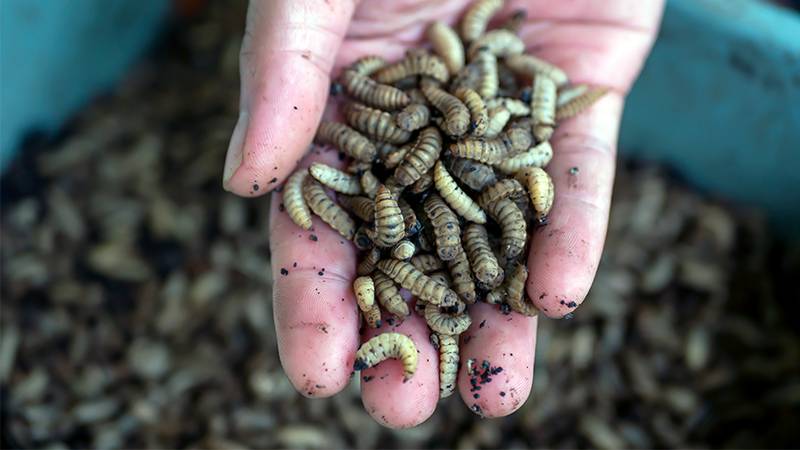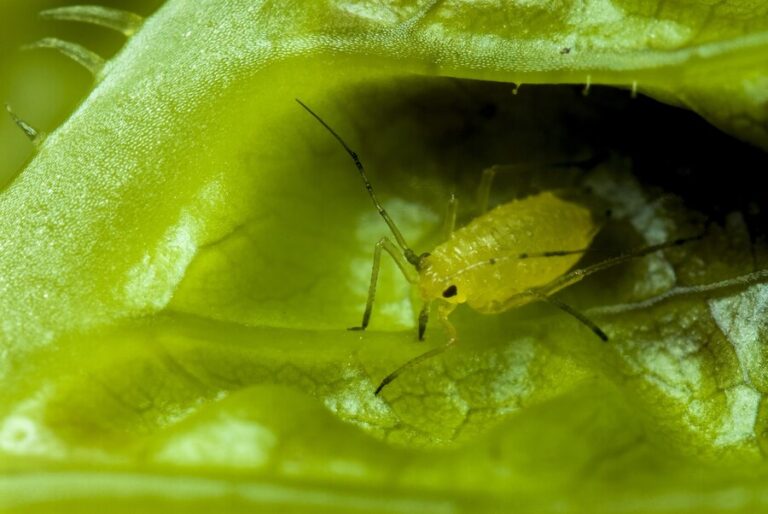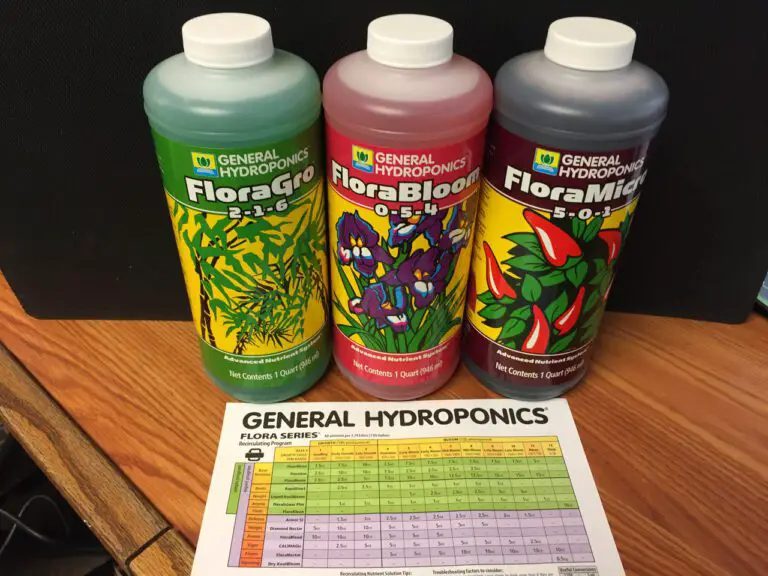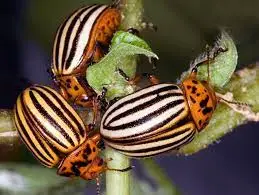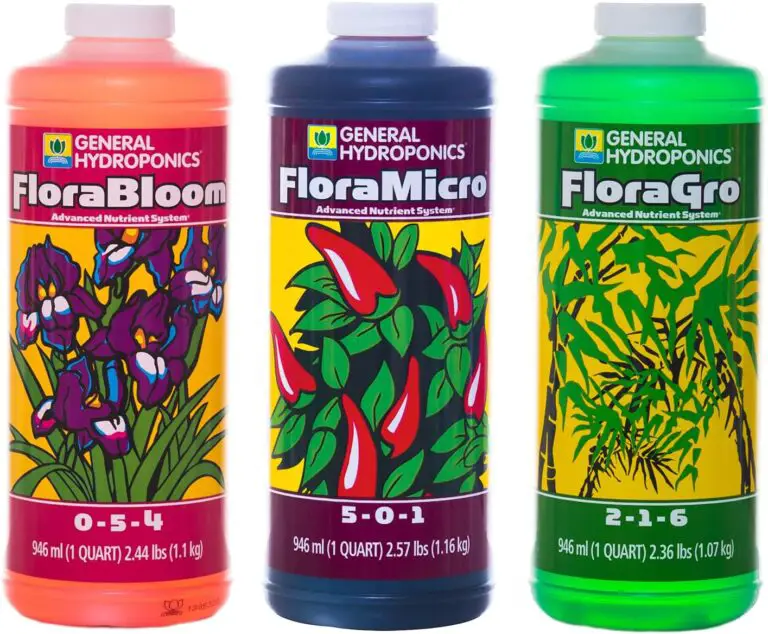Decoding Maggots in Compost: Essential Know-How
Understanding the Role of Maggots in Compost Breakdown
Maggots, often misunderstood and associated with unsanitary conditions, actually play a crucial role in the breakdown process of compost. These tiny larvae, usually belonging to flies, are powerful decomposers that accelerate the decomposition of organic matter in your compost pile. By feeding on organic waste, maggots break down complex molecules into simpler components, contributing to the transformation of waste matter into nutrient-rich compost.
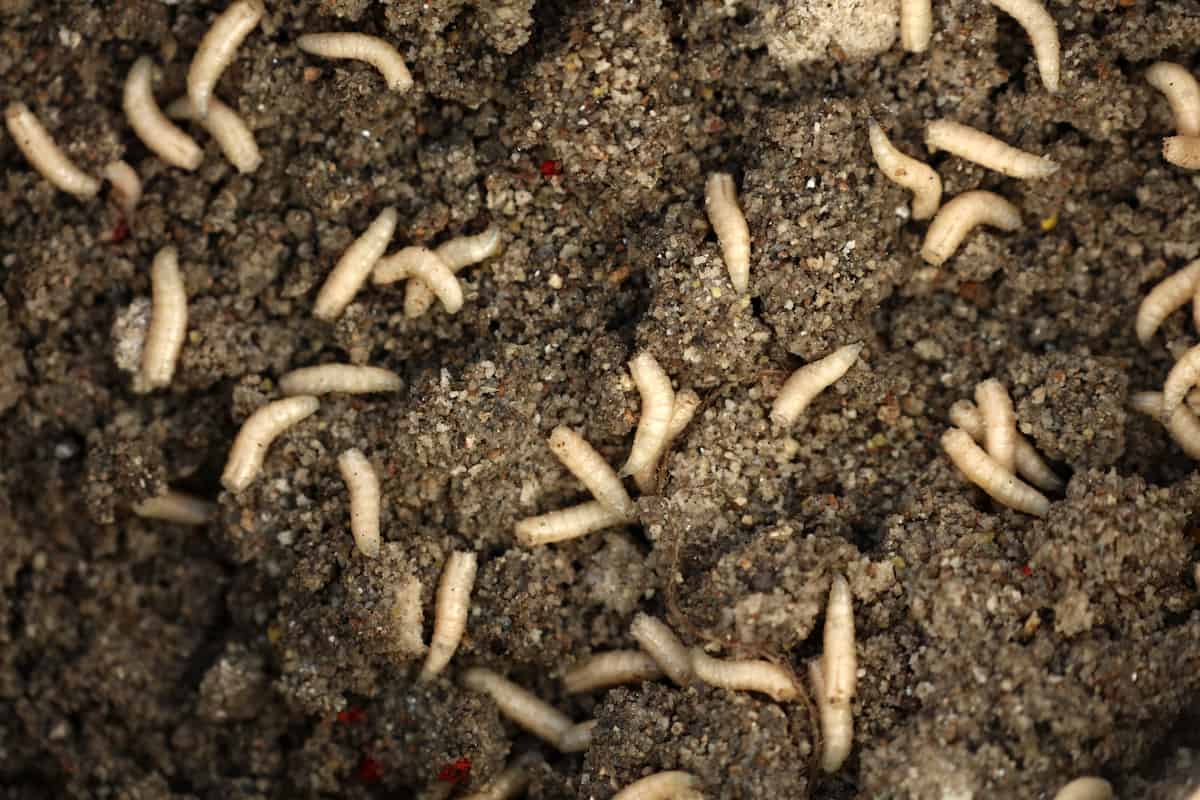
One of the main reasons maggots are effective in compost breakdown is their voracious appetite. They have the ability to consume a large quantity of organic waste, including kitchen scraps, plant matter, and animal manure. As they feed, maggots also break down tough materials that may be harder for other decomposers to break down effectively. Ultimately, their feeding activity speeds up the composting process, allowing for the efficient conversion of waste into valuable organic matter for your garden. However, it’s important to note that not all maggots are beneficial in this context. Only certain species, such as black soldier fly larvae (Hermetia illucens), are considered beneficial for composting due to their ability to break down waste quickly and efficiently. It’s crucial to understand the role of maggots in compost breakdown and recognize the specific types that contribute positively to your composting system.
Identifying Common Types of Maggots Found in Compost
Identifying Common Types of Maggots Found in Compost
When it comes to composting, the presence of maggots can be both fascinating and unsettling. But did you know that different types of maggots play a crucial role in breaking down organic matter in your compost pile? Understanding the common types of maggots found in compost can help you gain insight into the health and effectiveness of your composting system.
The most commonly encountered maggots in compost include those from the families Muscidae and Sarcophagidae. Muscidae maggots, also known as housefly maggots, are usually pale white or creamy in color and have a cylindrical shape. They are attracted to organic waste and thrive in warm and moist conditions, making compost piles a perfect haven for them. Sarcophagidae maggots, on the other hand, are commonly referred to as flesh flies or carrion flies. These maggots are typically larger than housefly maggots and have a distinct gray or black appearance. While they may not be as abundant in compost as housefly maggots, their presence indicates the presence of meat or other animal-based products in the compost mix.
The Benefits of Maggots in Composting Systems
Maggots may not be the most appealing creatures to come across, but they actually play a significant role in the composting process. These small, legless larvae of flies can benefit your composting system in several ways. Firstly, maggots are efficient decomposers, speeding up the breakdown of organic matter. Their voracious appetite allows them to consume large quantities of organic waste, breaking it down into simpler compounds. This helps to accelerate the composting process, turning waste into nutrient-rich compost more quickly.
In addition to their impressive digestive capabilities, maggots also contribute to the overall health of your compost. As they feed on organic matter, they release enzymes and digestive fluids that aid in the decomposition process. This enzymatic activity helps to break down complex organic molecules into simpler forms that can be readily absorbed by plants. The end result is a compost rich in essential nutrients, such as nitrogen, phosphorus, and potassium, which are vital for plant growth and health. So, while maggots may not be the most glamorous assisters in your composting efforts, their beneficial contributions cannot be ignored.
Here is a table that shows the benefits of maggots in decomposing the compost:
| Benefits of Maggots in Composting Systems | Description |
|---|---|
| Accelerated Decomposition | – Maggots, particularly those of black soldier flies, aid in breaking down organic matter, speeding up the composting process. |
| Nutrient Enrichment | – Maggots contribute to nutrient cycling by converting organic material into nutrient-rich castings beneficial for plants. |
| Aeration of Compost Pile | – Maggots tunnel through the compost, creating air channels that enhance aeration, promoting the growth of aerobic microorganisms. |
| Temperature Regulation | – Maggot activity generates heat, helping to regulate compost pile temperatures and accelerate the breakdown of organic material. |
| Suppression of Harmful Insects | – Maggots outcompete and suppress harmful insect larvae, reducing the population of potential pests in the compost pile. |
| Reduced Odor | – Efficient decomposition by maggots minimizes the production of unpleasant odors often associated with anaerobic decomposition. |
| Increased Microbial Diversity | – Maggot activity promotes a diverse microbial community in the compost, enhancing the overall effectiveness of decomposition. |
| Enhanced Vermicomposting | – In certain composting systems, maggots work in conjunction with earthworms, facilitating the breakdown of organic matter. |
| Contribution to Sustainable Waste Management | – Maggots play a role in converting organic waste into valuable resources, supporting sustainable waste management practices. |
| Ease of Harvesting | – Maggots facilitate easy separation during the harvesting phase, making it more convenient to collect mature compost for use. |
Creating an Optimal Environment for Maggots in Your Compost
To create an optimal environment for maggots in your compost, it is essential to understand their specific needs and provide suitable conditions. Maggots thrive in moist and aerobic environments, where there is an abundant supply of organic matter for them to feed on. Maintaining a balanced compost mixture is crucial, as it will provide the necessary nutrients and moisture for their survival.
To begin, ensure that your compost pile has a proper ratio of green and brown materials. Green materials, such as fresh grass clippings or kitchen scraps, are rich in nitrogen and provide maggots with a source of protein. On the other hand, brown materials, like dry leaves or straw, are carbon-rich and help create the ideal habitat for maggots.
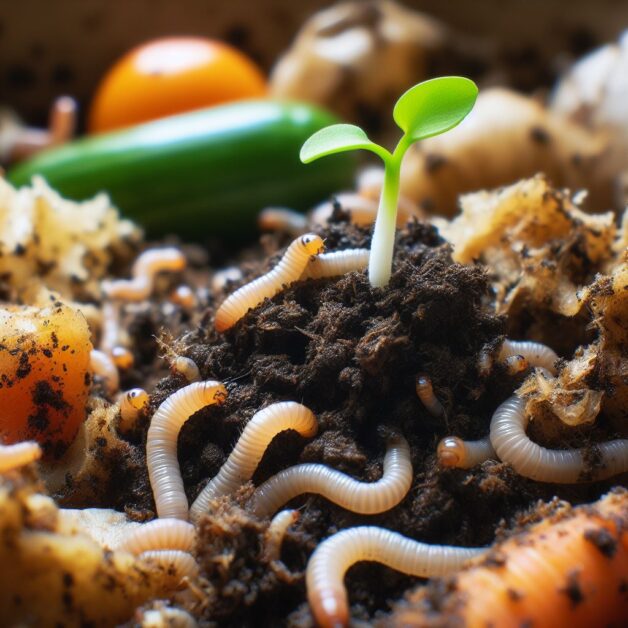
Maintaining the moisture level is vital for maggots’ development. Compost piles should be damp but not waterlogged, akin to a wrung-out sponge. If the pile becomes too dry, it can hinder maggots’ growth and activity. In contrast, an excessively wet environment can lead to anaerobic conditions, causing a foul smell and deterring maggots’ presence.
Turning the compost regularly is another essential practice in creating an optimal environment for maggots. By aerating the pile and mixing the materials, you promote decomposition and ensure that the maggots have access to a fresh food source. Additionally, turning the compost helps regulate temperature, preventing it from becoming too hot or cold for maggots’ survival.
By following these guidelines, you can provide maggots with an ideal environment to thrive in your compost. Remember, maggots are beneficial contributors to the composting process, aiding in the breakdown of organic matter and eventually transforming it into nutrient-rich compost for your garden.
Preventing Maggot Infestations in Compost Piles
Preventing Maggot Infestations in Compost Piles
While maggots play an important role in the composting process, it is understandable that you may want to prevent infestations in your compost piles to maintain a clean and manageable environment. Here are some practical tips to help you prevent maggot infestations in your compost.
1. Proper layering: One of the key strategies in preventing maggot infestations is to ensure proper layering in your compost pile. By alternating between green and brown materials, such as kitchen scraps and dry leaves, you create a balanced environment that discourages the excessive breeding of flies, which are the primary source of maggots. This layering technique also helps to promote sufficient airflow, preventing the buildup of moisture that can attract flies to lay their eggs.
2. Regular turning: Regularly turning your compost pile can help disrupt the feeding and breeding habits of flies, minimizing the chances of maggot infestations. Turning the pile effectively distributes heat and oxygen, creating an environment that is less conducive for fly larvae to thrive. Aim to turn the compost pile at least once a week, using a pitchfork or shovel to ensure thorough mixing. This practice also accelerates the decomposition process and helps maintain a well-balanced and odor-free compost pile.
By implementing these preventative measures, you can significantly reduce the likelihood of maggot infestations in your compost piles. Stay vigilant and attentive to the overall health of your compost, as prevention is always better than dealing with an infestation later on.
Managing Odor Issues Associated with Maggots in Compost
Maggots play a vital role in the decomposition process of compost, breaking down organic materials into nutrient-rich matter. However, their presence can sometimes lead to unpleasant odors in your compost pile. Managing odor issues associated with maggots in compost requires a proactive approach to ensure a healthy and balanced ecosystem.
One effective strategy for addressing odor problems is proper moisture management. Maggots thrive in moist environments, so it is important to maintain the right moisture levels in your compost pile. Aim for a moisture content of around 50-60%, which can be achieved by regularly monitoring and adjusting the moisture levels. Avoid overwatering the compost pile, as excessive moisture can lead to anaerobic conditions and increase the chances of odors developing.
Additionally, maintaining a proper carbon-to-nitrogen ratio is crucial for odor control. A balanced mixture of green materials, such as kitchen scraps and grass clippings, and brown materials, such as dry leaves and wood chips, provides the ideal environment for maggots. Too much nitrogen-rich material can result in a strong ammonia smell, so make sure to include a sufficient amount of carbon-rich materials to balance the mix. Regularly turning the compost pile will help mix the materials thoroughly and promote proper airflow, reducing the risk of odors.
Remember, odors in your compost pile can be a sign of imbalances or issues that need attention. By implementing these strategies and closely monitoring the moisture and carbon-to-nitrogen levels, you can effectively manage odor issues associated with maggots while still benefiting from their important role in the composting process.
Watch the video to learn more about maggots in compost.
How Maggots Contribute to the Decomposition Process in Composting
Maggots play a crucial role in the decomposition process of compost. As voracious feeders, they consume organic matter and break it down into smaller, more manageable pieces. Their feeding activity creates a favorable environment for other beneficial microorganisms, such as bacteria and fungi, to further break down the organic material. This collaborative effort between maggots and microorganisms accelerates the decomposition process, ultimately producing nutrient-rich compost.
One of the main ways maggots contribute to compost decomposition is through their mechanical action. As maggot larvae move and feed, they physically shred and break apart organic matter. This fragmentation increases the surface area available for microbial colonization and enzymatic activity, facilitating faster decomposition. Additionally, maggot excrement, known as frass, contains enzymes and beneficial bacteria that aid in the breakdown of organic material. These enzymes and bacteria not only accelerate decomposition but also contribute to the overall microbial diversity and health of the compost ecosystem.
By optimizing the decomposition process, maggots help convert organic waste into valuable compost, rich in nutrients that benefit plant growth. The breakdown of organic matter by maggots releases essential nutrients such as nitrogen, phosphorus, and potassium, making them more readily available for plant uptake. Moreover, the presence of maggots in compost has been shown to increase the production of amino acids and vitamins that promote plant health and vigor. Thus, harnessing the power of maggots in composting systems can lead to the production of nutrient-rich compost that can enhance soil fertility and support robust plant growth.
The Connection Between Maggots and Nutrient-rich Compost
Maggots, often associated with decay and uncleanliness, play a crucial role in the creation of nutrient-rich compost. These seemingly unappealing creatures are actually efficient decomposers, breaking down organic matter and transforming it into a valuable resource for plant growth. Through their feeding activity, maggots accelerate the decomposition process and contribute to the breakdown of complex organic compounds into simpler forms that plants can readily absorb.
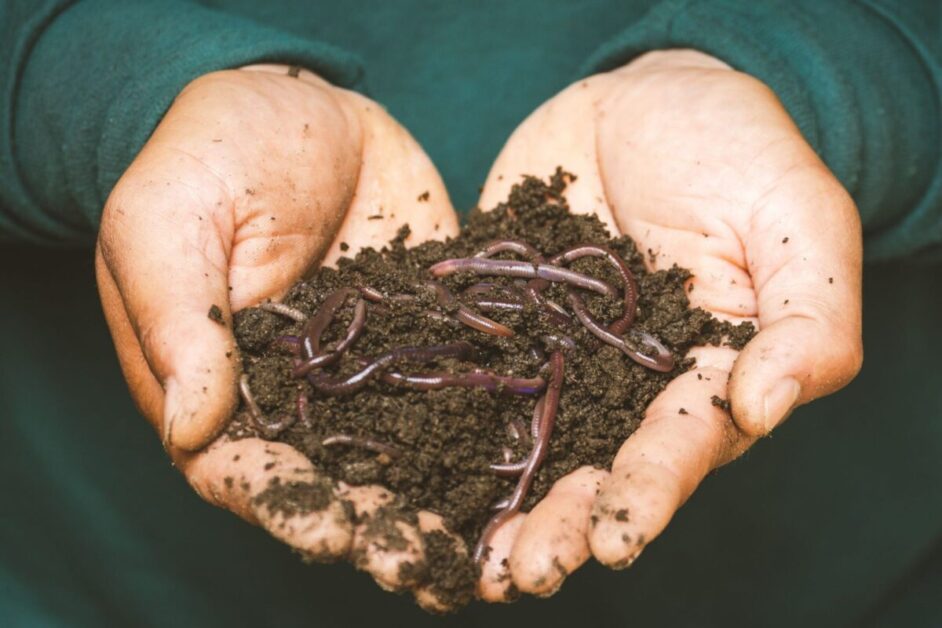
One of the key benefits of having maggots in your compost is their ability to increase the nutrient content of the final product. As maggots consume organic waste, they excrete waste products rich in nitrogen, phosphorus, and potassium. These essential nutrients are vital for plant growth, and their presence in compost can greatly enhance the fertility of your soil. Moreover, maggots release enzymes that help break down proteins, fats, and carbohydrates, further aiding in the nutrient release process. The resulting compost not only provides vital nutrients to plants but also improves soil structure and enhances water retention, leading to healthier and more vigorous plant growth. So, while maggots may not be the most appealing addition to your compost pile, their presence is a testament to the nutrient-rich environment they help create.
Addressing Concerns About Maggots in Compost
Maggots are often a cause for concern when found in compost piles. Many gardeners worry about the potential health risks, unpleasant odors, and damage to the composting process that these wriggling larvae may bring. However, it’s important to understand that maggots play a vital role in the decomposition process, contributing to the breakdown of organic matter and the creation of nutrient-rich compost. Addressing concerns about maggots in compost requires a balanced approach, considering the benefits they provide as well as the steps that can be taken to prevent and manage any unwanted infestations.
First and foremost, it’s crucial to recognize that maggots are natural decomposers and are commonly found in compost piles. They are the larvae of various fly species, such as the common housefly, soldier fly, and blowfly. These species are attracted to the organic material in compost, laying their eggs in the warm and nutrient-rich environment. As the maggots hatch, they consume organic matter, breaking it down into smaller particles that can be further decomposed by other microorganisms. This process is an essential part of composting and assists in the transformation of organic waste into humus, a valuable soil amendment.
Here is a table given below that shows the concerns about maggots in compost:
| Addressing Maggots in Compost | Explanation |
|---|---|
| Presence of Maggots | – Natural part of composting, transforming into insects. |
| Unpleasant Appearance | – Temporarily visible, harmless, become beneficial insects. |
| Odor Issues | – Maggots aid in efficient decomposition, reducing odors. |
| Potential Pests | – Outcompete harmful larvae, decreasing potential pests. |
| Overpopulation Control | – Populations self-regulate based on available material. |
| Decomposition Efficiency | – Actively accelerates decomposition for nutrient-rich compost. |
While the presence of maggots in compost is a sign of an active decomposition process, it’s understandable that some gardeners may have concerns about potential issues. However, it’s important to note that when compost piles are properly maintained and managed, the risks associated with maggots can be minimized. Good composting practices, such as maintaining the proper moisture and temperature levels, turning the pile regularly, and properly covering the compost, can help prevent excessive maggot populations and deter unwanted fly species from laying eggs in the compost. Additionally, using a well-balanced mix of organic materials and avoiding meat, dairy, and fatty food scraps can also reduce the attractiveness of the compost pile to flies. By following these practices, gardeners can address concerns about maggots in compost and ensure a healthy and productive composting system.
Promoting Healthy Maggot Populations in Your Compost
To promote healthy maggot populations in your compost, it is essential to create an environment that supports their growth and development. One of the key factors is maintaining the appropriate moisture level. Maggots thrive in a moist environment, but excessive moisture can lead to anaerobic conditions and unpleasant odors. Aim to keep your compost pile consistently moist, similar to a damp sponge, by regularly monitoring its moisture content and adjusting as necessary. A moisture meter can be a useful tool for accurately determining the moisture levels.
In addition to moisture, temperature plays a crucial role in promoting healthy maggot populations. Maggots prefer temperatures between 77°F and 95°F (25°C and 35°C) for optimal growth and activity. To achieve this temperature range, consider locating your compost pile in a sunny area and insulating it with organic materials like straw or leaves. Regularly turning the compost will also help regulate the temperature by distributing heat evenly throughout the pile. By providing the right temperature conditions, you can encourage the thriving and reproduction of maggots, which aid in the compost breakdown process.
Recognizing Signs of an Unhealthy Maggot Infestation
An unhealthy maggot infestation in your compost can not only be unsightly, but it can also indicate potential problems in your composting system. There are several signs to look out for that may indicate an unhealthy maggot infestation.
Firstly, an overwhelming number of maggots in your compost is a clear indication that something is amiss. While maggots are a natural part of the decomposition process, an excessive population can signal an imbalance in your compost pile. This imbalance may be caused by an abundance of food waste or an insufficient carbon-to-nitrogen ratio.
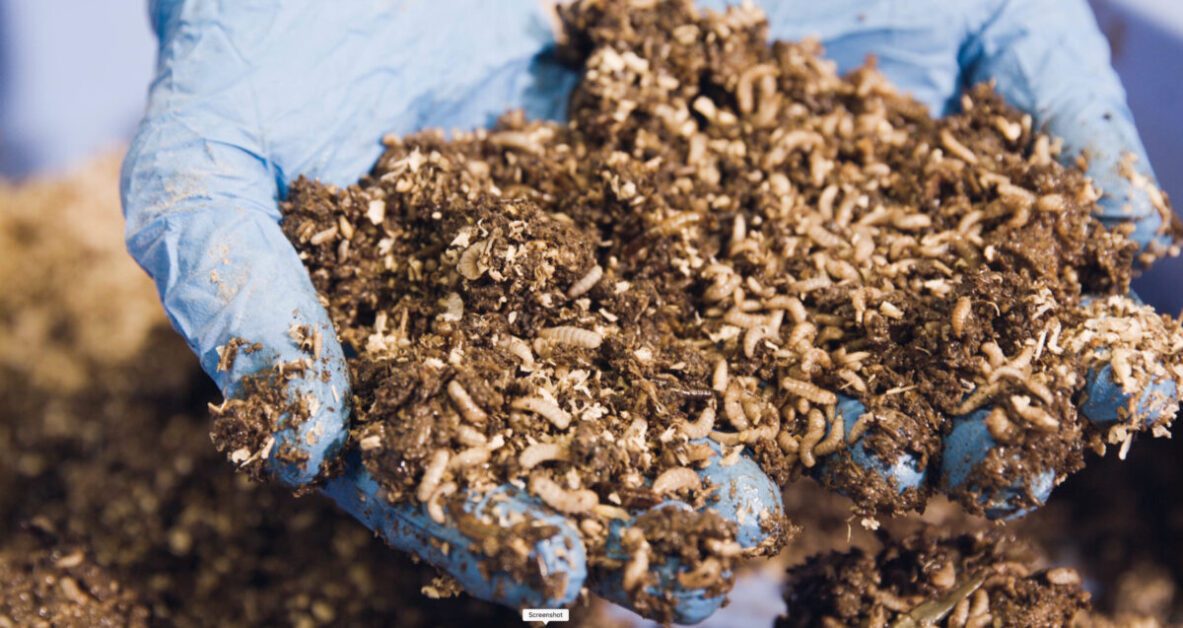
Secondly, if you notice a foul odor emanating from your compost that is stronger than the usual earthy smell, it could be a sign of an unhealthy maggot infestation. Maggots can contribute to the breakdown of organic matter, but when their population becomes too large, the decomposition process can be disrupted, leading to a pungent odor. Additionally, excessive moisture levels in your compost can exacerbate the growth of maggots and contribute to the unpleasant smell.
Common Misconceptions About Maggots in Compost
One common misconception about maggots in compost is that they are harmful and carry diseases. While it is true that maggots are often associated with unsanitary conditions, they actually play a vital role in the composting process. Maggots are the larvae of various fly species, and they feed on the organic material in the compost. Their activities help break down the organic matter into smaller, more manageable pieces, aiding in decomposition. In fact, maggots are often used in vermiculture systems and composting facilities to accelerate the composting process.
Another misconception is that maggots indicate a poorly managed or unhealthy compost pile. While it’s true that an excessive number of maggots might be a sign of certain issues, such as too much moisture or an abundance of high-nitrogen materials, not all maggots in compost are cause for concern. Maggots thrive in moist and nutrient-rich environments, which are ideal conditions for composting. However, if you notice a sudden increase in maggot populations or an unpleasant odor, it is important to assess and adjust the compost pile’s conditions to maintain balance. By monitoring and managing moisture levels, ensuring proper carbon-to-nitrogen ratios, and turning the compost regularly, you can maintain a healthy environment for maggots and other beneficial organisms in your compost.
Integrating Maggots into a Balanced Ecosystem in Your Composting Setup
Integrating maggots into a balanced ecosystem in your composting setup is a key element in creating a thriving and sustainable composting system. Maggots play a vital role in breaking down organic matter, accelerating the decomposition process, and contributing to the overall health of your compost.
When introducing maggots into your compost pile, it is important to ensure that the environment is suitable for their growth and development. Maintaining optimal temperature and moisture levels is crucial, as maggots thrive in warm and moist conditions. Monitoring and adjusting these factors regularly will help create a favorable habitat for their growth, ensuring their productive contribution to the composting process.
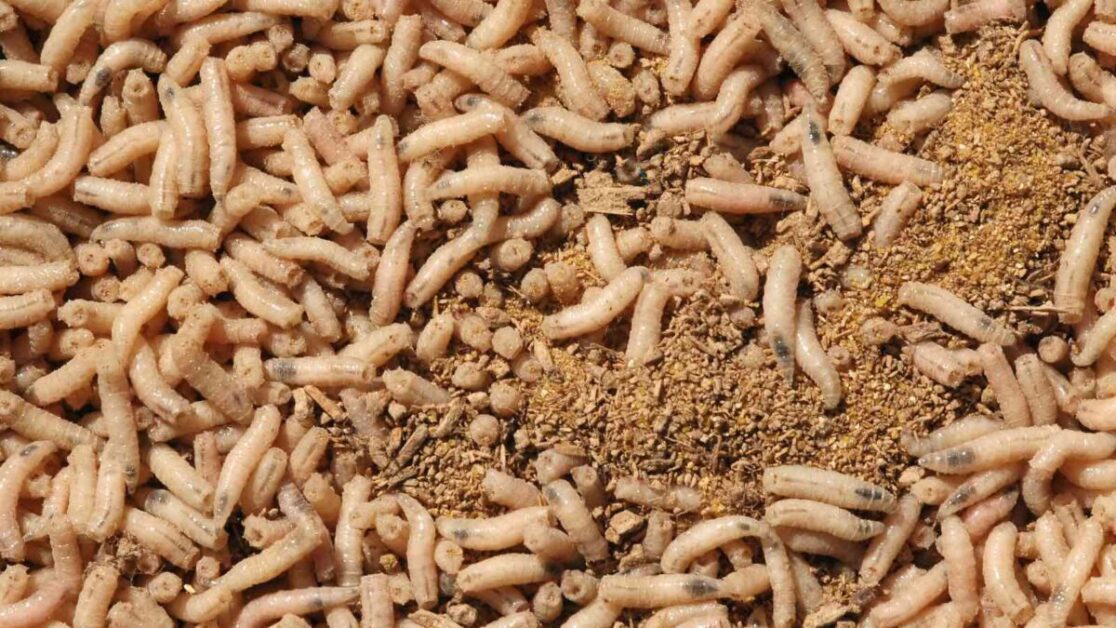
Moreover, it is essential to establish a diverse food source for maggots within your compost heap. Providing a variety of organic materials, such as fruit and vegetable scraps, plant trimmings, and coffee grounds, will not only attract maggots but also foster a diverse microbial community. This diverse ecosystem will enhance the decomposition process and result in nutrient-rich compost. Additionally, incorporating different types of maggots can contribute to a more balanced composting system, as each species has unique abilities and preferences in breaking down specific types of organic matter.
In summary, integrating maggots into your composting setup can be highly beneficial, as they contribute to the efficient decomposition of organic waste and the creation of nutrient-rich compost. By creating an optimal environment and establishing a diverse food source, you can harness the power of these natural decomposers to enhance the overall health and productivity of your composting system.
The Impact of Maggot Activity on Compost Temperature and Moisture Levels
Maggots play a crucial role in the decomposition process of compost, significantly impacting the temperature and moisture levels within the pile. As maggots consume organic matter, they generate heat as a byproduct of their metabolic processes. This heat production raises the temperature of the surrounding compost, creating an optimal environment for the breakdown of organic materials.
The increase in compost temperature brought about by maggot activity has several benefits. Firstly, it accelerates the decomposition process, allowing for quicker breakdown of organic materials. This, in turn, results in the production of nutrient-rich compost that can be used to enhance soil fertility. Additionally, the elevated temperature within the compost pile helps to kill off weed seeds and pathogens, contributing to a healthier end product.
Furthermore, the presence of maggots in compost plays a significant role in maintaining the moisture levels. Maggots have a high water content, and as they consume organic matter, they release moisture back into the compost pile. This moisture contributes to the overall moisture balance, preventing the compost from becoming too dry, which could impede the decomposition process. Moreover, the moisture released by maggots helps create the ideal environment for the growth of beneficial microorganisms that further aid in the breakdown of organic materials.
In summary, the activity of maggots in compost has a direct impact on the temperature and moisture levels of the pile. This increase in temperature accelerates the decomposition process, resulting in nutrient-rich compost. The moisture released by maggots helps maintain an optimal moisture balance, contributing to the overall effectiveness of the composting system.
The table below shows the impact of maggots in temperature nad moisture levels of:
| Maggots’ Role in Compost Decomposition | Description |
|---|---|
| Heat Generation | – Maggots generate heat during the decomposition of organic matter, raising the temperature within the compost pile. |
| Accelerated Decomposition | – Increased compost temperature accelerates the breakdown of organic materials, leading to quicker decomposition. |
| Production of Nutrient-Rich Compost | – Accelerated decomposition results in the production of nutrient-rich compost, enhancing soil fertility upon application. |
| Weed Seed and Pathogen Reduction | – Elevated compost temperature helps eliminate weed seeds and pathogens, contributing to a healthier end product. |
| Moisture Regulation | – Maggots, having a high water content, release moisture as they consume organic matter, maintaining optimal moisture levels. |
| Prevention of Over-Drying | – Released moisture prevents the compost from becoming too dry, preventing potential impediments to the decomposition process. |
| Creation of Ideal Microbial Environment | – Moisture released by maggots fosters the growth of beneficial microorganisms, enhancing the breakdown of organic materials. |
Harvesting and Utilizing Maggot-Enriched Compost
Harvesting and utilizing maggot-enriched compost can greatly benefit your gardening endeavors. When the maggots have completed their role in the decomposition process, you can gather the compost for use in your garden beds, potted plants, or hydroponic systems. The nutrient-rich composition of maggot-enriched compost makes it a valuable addition to your soil, providing essential elements that support healthy plant growth.
To harvest the compost, start by removing any large debris or materials from the top layer. This will help separate the mature compost from the remaining organic matter. You can then gently sift the compost using a fine mesh screen or sieve, allowing the smaller particles to fall through while retaining the larger pieces for further decomposition. The resulting compost can be added directly to your garden soil or mixed with potting mixes, providing a boost of nutrients to nourish your plants.
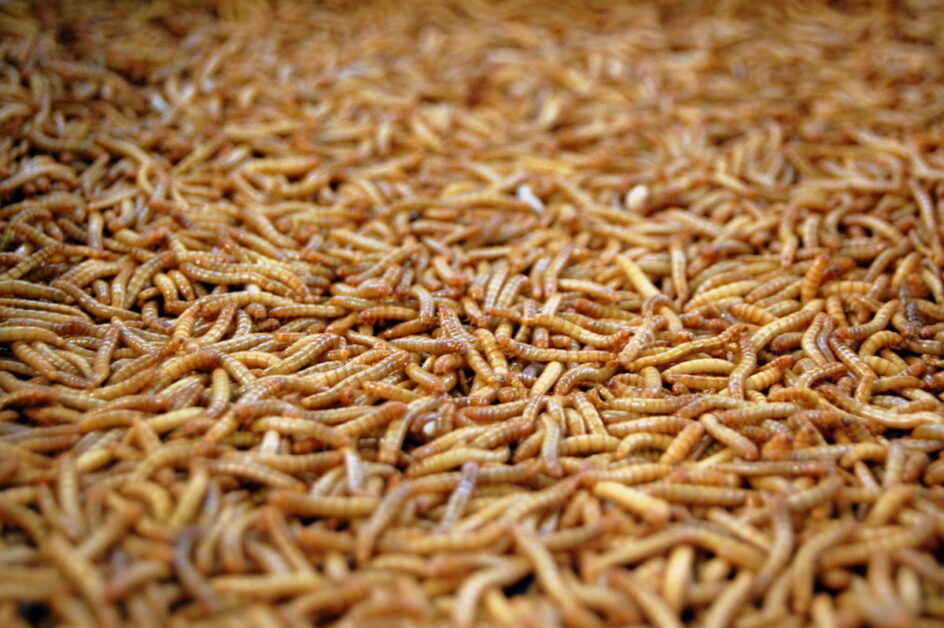
Utilizing maggot-enriched compost has its advantages, including increased soil fertility, improved soil structure, and enhanced plant growth. The nutrients released by the maggots during their feeding process enrich the compost, enriching the soil with essential macronutrients like nitrogen, phosphorus, and potassium, as well as micronutrients such as iron, zinc, and magnesium. By incorporating this compost into your gardening practices, you can support a thriving ecosystem that promotes healthy plant growth and maximizes yields.
In the next section, we will explore common troubleshooting issues related to maggots in compost, offering practical solutions to address any concerns you may have.
Troubleshooting Common Issues Related to Maggots in Compost
When it comes to composting, there may be instances where you encounter certain issues related to maggots in your pile. While maggots are a natural part of the decomposition process, their presence can sometimes cause concerns and challenges. Understanding how to troubleshoot and address these issues can help you maintain a healthy compost system.
One common issue that gardeners may face is an excessive maggot infestation in their compost piles. This can occur when the balance of organic materials is off, resulting in a nutrient-rich environment that attracts a large number of flies to lay eggs. To prevent and address this problem, it is important to maintain a proper balance of carbon-rich (such as dry leaves, wood chips, and straw) and nitrogen-rich (such as kitchen scraps and grass clippings) materials in your compost. Regularly turning the pile and ensuring adequate aeration can also help control maggot populations. Additionally, keeping the pile moist but not overly wet can discourage flies from laying eggs and reduce maggot activity. By addressing these factors, you can minimize the occurrence of maggot infestations and maintain a healthy composting ecosystem.
Are maggots harmful to compost?
No, maggots are not harmful to compost. In fact, they play a crucial role in the decomposition process by breaking down organic matter.
How do maggots contribute to the nutrient content of compost?
Maggots help in the breakdown of organic material, releasing essential nutrients into the compost. Their activity increases the nutrient richness of the compost.
Can maggots cause odor issues in compost?
Maggots themselves do not cause odor issues. However, if the compost pile is not properly managed or if there are other underlying issues, odor problems may arise.
How can I prevent maggot infestations in my compost pile?
To prevent maggot infestations, it is important to balance the moisture levels, turn the compost regularly, and avoid adding any meat or dairy products that may attract flies and their larvae.
What are the signs of an unhealthy maggot infestation in compost?
Signs of an unhealthy maggot infestation include a foul odor, a decrease in compost temperature, and the absence of other beneficial organisms like earthworms.
Can maggots survive in a compost pile during winter?
Maggots are not likely to survive in a compost pile during winter as they prefer warmer temperatures. However, their eggs may survive and hatch when the weather becomes favorable.
Can I use compost with maggots in my garden?
Yes, you can use compost with maggots in your garden. The presence of maggots indicates an active decomposition process, which means the compost is rich in nutrients and beneficial for plants.
Can I speed up the decomposition process by adding more maggots to my compost?
Adding more maggots to your compost will not necessarily speed up the decomposition process. It is more important to maintain the right balance of ingredients, moisture, and aeration for optimal decomposition.
Can maggots attract pests or flies to my compost pile?
Maggots themselves do not attract pests or flies. However, if the compost pile is not properly managed, it may attract flies that lay eggs and lead to maggot infestations.
How long does it typically take for maggots to break down organic matter in compost?
The time it takes for maggots to break down organic matter in compost can vary depending on various factors such as temperature, moisture levels, and the types of organic material present. Generally, it can take a few weeks to several months.

